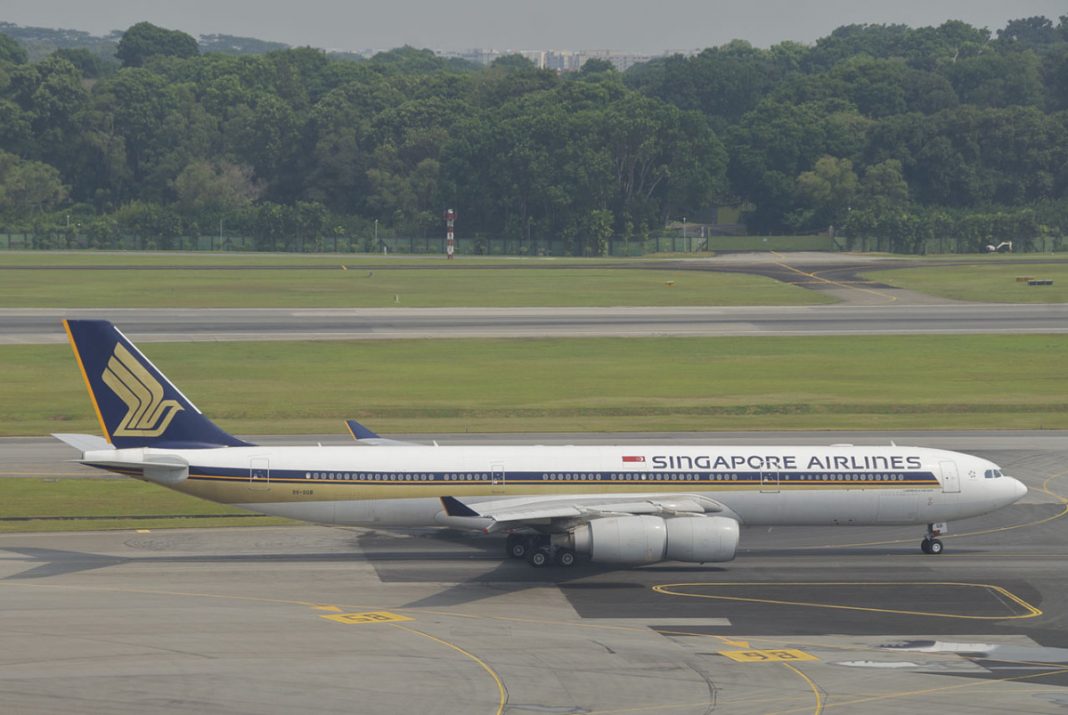Remember that time that Boeing bought 17 Airbus A340 jets? Yes – this actually happened! Taking place over 20 years ago, this interesting piece of aviation history may not be common knowledge to everyone. Let’s rediscover the story and how it all happened…

The Boeing 777-200ER, initially named the 777-200IGW (for ‘increased gross weight’), was launched in the mid 90s. Looking to establish the program and build up sales, Boeing saw massive potential for business with Southeast Asian carrier Singapore Airlines.
However, the airline was somewhat content with the A340-300s in its fleet that were filling the same role. Thus, Boeing just needed to find a way to convince the airline to try its new product. It came up with a smart way of doing so.
Back in 1999
It was mid-June 1999, on the last day of the Paris Air Show, when American plane-maker Boeing announced a deal to purchase 17 Airbus A340-300s from Singapore Airlines. This bold move was made in order to sway Singapore Airlines to buy 10 of Boeing’s new 777-200ERs.
According to The New York Times, Boeing had actually agreed to buy the planes years prior, in 1995. This was when Singapore Airlines had placed its large order for 34 of the 777s with options for 43 more.
Airbus wasn’t happy with the deal – a reaction that seems quite understandable.

“[This is] an act of desperation…We’re preparing our counterattack at the present time…I don’t want to predict what our response will be.” -John Leahy, Senior Vice President and Commercial Director of Airbus (1999) via New York Times
The New York times goes on to report that Leahy said that airlines had asked Airbus to do the same thing as Boeing: Buy up the 777s so that new A340s could be purchased. He had downplayed this practice, saying, ”We cannot make a good business case for doing that, and we always assumed our competitor couldn’t make a good business case either…”
What happened next
News sources are scarce when covering just exactly how Airbus responded and retaliated with Boeing’s move. We were able to find a single post on a FlightAware message thread commenting on the aftermath of the Boeing deal. The user stated that Airbus considered the Boeing-Singapore Airlines-deal a violation of fair trade practices. They also noted that retaliation came in the form of an advertising campaign that claimed that four engines were safer than two.
While it’s difficult to say if the ad campaign was a direct result of the 1999 deal or simply to curb the rise in popularity of the Boeing 777 (versus the Airbus A340), we can say with certainty that there was indeed a campaign.

In 2002, Boeing wrote an article that reference’s Airbus’ campaign to convince airlines that four engines were better than two. At the 2002 Farnborough Air Show, Airbus stirred the debate with “a colossal billboard” at the edge of a runway that read, “A340 — 4 engines 4 long haul.” The article goes on to say that similar full-page ads appeared in air show magazines and daily London newspapers.
Apparently, Airbus officials argued that the ads were not about safety. However, industry experts disagreed, saying that they suggested twinjets like the Boeing 767 and 777 were not as safe or reliable.
Whatever the actual intent was, the campaign backfired slightly as it angered airplane engine manufacturers, who voiced their disapproval of the ads run at Farnborough. David Calhoun, president and chief executive of General Electric’s GE Aircraft Engines, said the following to The Wall Street Journal:
“We are vehemently opposed to what Airbus is doing here…An ad like that is the last thing this industry needs right now.”
As a side note, if that name sounds familiar, it’s because Calhoun is now Boeing’s CEO.

A battle Airbus couldn’t win
While Boeing’s sales tactic and approach with Singapore Airlines was somewhat unconventional, the move from quad jets like the A340 to twinjets like the 777 is something that has taken place all over the world. In retrospect, it looks like it was a battle that Airbus was destined to lose. At least the decline of Airbus’ A340 has since given way to the success of the A350 and A330neo lines of aircraft.
Did you know about this Singapore Airlines deal prior to reading this article? Let us know in the comments.
[ad_2]
Source link


